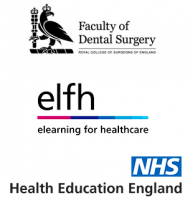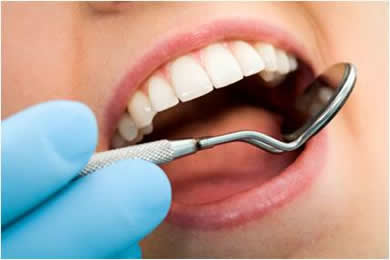Why is the Patient Here in Your Practice? for Oral Health Practiitoners



This session outlines the reasons why people might or might not attend the dental practice. It identifies contributing factors and barriers that influence service usage.
Learning objectives
By the end of this session you will be able to:
- list the reasons why patients visit the dentist
- identify the factors affecting dental care attendance
- identify the differences between dental and medical healthcare usage
- outline the current NICE guidelines for patient attendance
There can be many barriers to attending for dental care.
A common way of assessing the size of the barriers is to monitor the percentage of a population that has not visited the dentist.
Before commencing this session you should have reviewed:
- concepts of need
- epidemiology of oral diseases
- the different models of health
Paul qualified in 1980 from Liverpool University and worked within both the CDS and GDS for several years, during which time he obtained an MCDH from Birmingham and his DDPH. He then moved to London and worked in various academic posts at the Royal London, where he completed his PhD, King’s College London, and UCL. During this time he was awarded an FFGDP. He also holds an FDS and FPHM.
Paul has worked in various capacities for a number of organisations within dentistry including the BDA, the Department of Health, the DPB, the FGDP, the Scottish NHS Executive, and the WHO, as well as several national governments. He has also assisted a number of other bodies on dental matters including the Consumers Association, the Office of Fair Trading and the National Audit Office, and acted as the Advisor to the Health Select Committee on NHS dentistry. He was appointed President of the British Association for the Study of Community Dentistry in April 2004 and currently is the course director of the leadership and management programme in dentistry as well as national research co-ordinator for the Faculty.
Paul is also part of the Module Editorial Team at e-Den, and is co-Module Editor for Module 1 Patient Assessment, and Module 12 Management and Leadership.

- Medical and Pharmacology | Human diseases and medi...
- Posted By eIntegrity Healthcare e-Learning
- Posted Date: 2024-11-06
- Location:Online
- This session will describe rheumatoid arthritis (RA), systemic lupus erythaematosus (SLE) and Sjögren’s syndrome. It will also identify the medications used for each condition and consider the impact of each condition on dental care.
- Medical and Pharmacology | Human diseases and medi...
- Posted By eIntegrity Healthcare e-Learning
- Posted Date: 2024-11-06
- Location:Online
- This session provides an overview of some of the clinically important respiratory challenges you may come across as a dental practitioner.
- Medical and Pharmacology | Human diseases and medi...
- Posted By eIntegrity Healthcare e-Learning
- Posted Date: 2024-11-06
- Location:Online
- This session describes the signs and symptoms that may manifest in patients diagnosed with common renal problems and the relevance of common renal disorders to the delivery of dental care.
- Medical and Pharmacology | Human diseases and medi...
- Posted By eIntegrity Healthcare e-Learning
- Posted Date: 2024-11-06
- Location:Online
- This session will look at the relevance of common neurological disorders to the delivery of dental care by the dental practitioner.
- Medical and Pharmacology | Human diseases and medi...
- Posted By eIntegrity Healthcare e-Learning
- Posted Date: 2024-11-06
- Location:Online
- This session will look at the signs and symptoms of neurological disorders and how the dental practitioner may recognise them.







